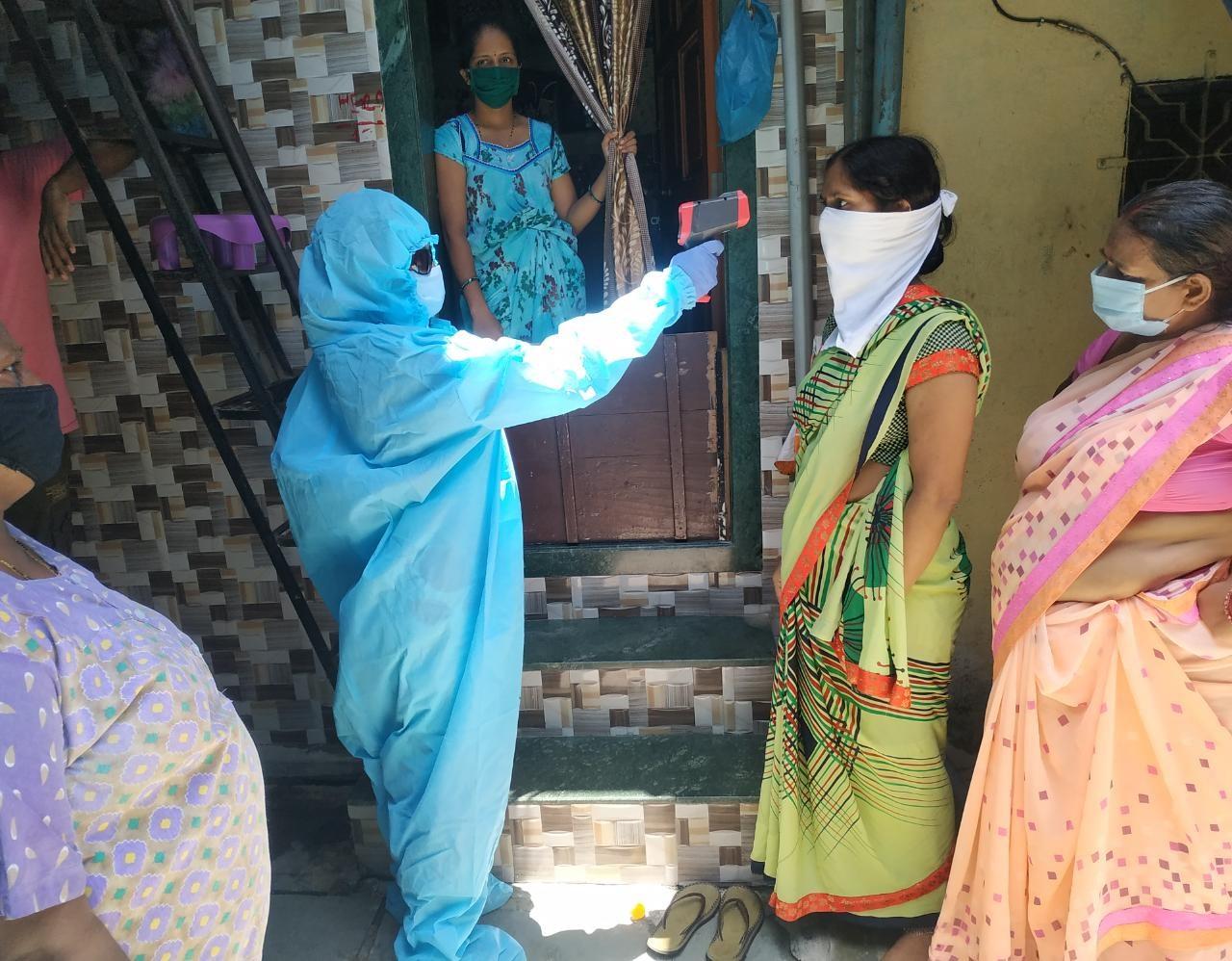Samuhik Pahal
4
Distress in households with CwDs COVID lockdowns have led to food insecurity among independent families in Delhi By Pratik Aggarwal from ASTHA
P
inky is a 25-year-old single mother, living with her one-year-old child and elderly parents in a rented room in Tughlakabad village in Delhi. The child has a vision impairment, the grandmother is on long-term seizure medication, and 55year-old grandfather, a daily wager, is the sole breadwinner of the family. It is families in precarious situations like these that the lockdown has pushed to the brink. The majority of state-sponsored lockdown relief measures have failed to reach the family because of the disability of the child and lack of documents with the family. Pinky says, "जब पहला लॉकडाउन हुआ तब लगा चलो तीन हफ्ता ही तो है, लेककन जब बार बार बढ़ने लगा तब पैसो की बहुत तंगी होने लगी. चार महीने का ककराया कसर पे था, राशन नहीं था और खाने -पीने की बहुत कमी होने लगी, बच्चे को भी दू ध नहीं दे पाते थे. लॉकडाउन में कपयूष की तकबयत बहुत ख़राब हुई, इसकी नानी को भी दौरे बढ़ने लगे, लेककन कुछ सवारी नहीं चल रही थी तो कहााँ जाते. कुछ समझ नहीं आ रहा था." (Translation: When the lockdown was announced for the first time, we thought we could manage since it was for a short period, but when the lockdown kept getting extended, we started facing challenges. Rent for four months was due, we didn't have any stock of grocery and there was acute shortage of food; we could not even get milk for our child. Piyush's health deteriorated during the lockdown, but there was no source of income – where could we have gone? We couldn't understand anything.)
Rent for four months was due, we didn't have any stock of grocery and there was acute shortage of food; we could not even get milk for our child. The story of Pinky's family is not an aberration; it is typical of many families of children and persons with disabilities, since the COVID-19 lockdown. Many of the families ASTHA works with are what we call 'high support families' -- these are families with more than one child with disabilities, or are single parent or grandparent led. Families live with an average of five people sharing one ill -ventilated room, in a rented accommodation with just basic amenities, down narrow broken lanes, and share community toilets. The social determinants of urban slums render them susceptible to COVID-19. In conditions like these, physical distancing is impossible. Delhi has been a host city for millions of migrants, from the neighbouring states of Bihar, Bengal and Uttar Pradesh, who settle here
A family part of ASTHA’s programme in Delhi. Photo by ASTHA
for a wide range of reasons. According to Centre for the Study of Developing Societies (CSDS) data, 40% of Delhi's population comprises migrants. It is with this population that ASTHA has been working. During the lockdown, nearly 70-80% of families ASTHA reached out to were without ration cards and other important documents such as Aadhar cards. The government started an e-coupon system for temporary ration cards. Still an online process, lack of access to smartphones and long delays in approval of the process rendered the policy inaccessible to most. The digital divide was clear as Divyanhsu's (a young child with Down Syndrome) father says, "हम कभी पढ़े नहीं, फोन भी नहीं है, कहााँ से फॉमम भरें गे. ककसी को १०० रूपये भी कदया फॉमम भरने को, तब भी नं बर नहीं आया." (Translation: We are not educated, and we don't have a phone. How do we fill a form? Once we gave Rs 100 to someone to fill the form, but we still didn't get our e-coupon.) It was then that an ASTHA community worker took on the task. It was difficult as most parents did not have a phone, and she had to coordinate from her home for OTPs and upload documents. After the application process, a hard copy of the form was demanded, which was extremely difficult for families to produce during the lockdown. However, after constant attempts and a long wait, many families acquired rations.
An evolving strategy Historically, it has been seen that children with disabilities have been isolated, neglected and often confined to their






